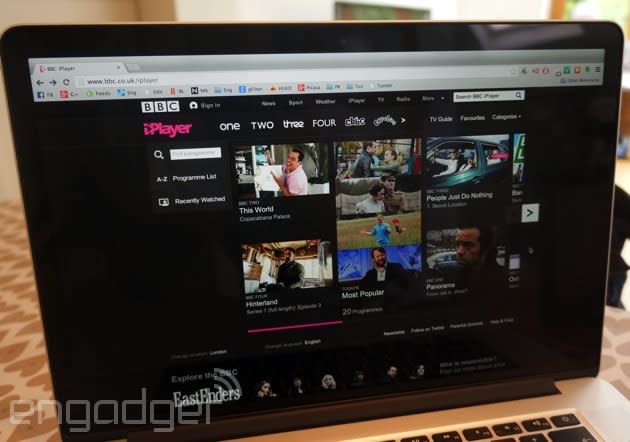EU aims to remove regional restrictions on digital goods by 2017

Being an EU citizen means you can grab your passport, head to the airport and travel freely among the 28 EU member states. When you arrive at your final destination, however, and fire up Netflix in your hotel room, you'll find a local content catalog that may not include your favorite show. The same level of localization is true for many digital goods and services, which is why the European Commission wants to create a "Digital Single Market" to rid the EU of geo-blocking and encourage a more connected Europe online. The Commission gave a vague outline of its Digital Single Market strategy back in March, but today its released a detailed proposal of what it intends to do by the end of next year to make it happen.
In many cases, if you try to access an online service from outside your home country (or the country you're registered in, at least), you'll be geo-blocked. This can happen in several ways: you may be greeted with a local version of the service, à la Netflix, or denied access altogether. It's the unfortunate consequence of complicated content licensing agreements, but you can't change the way the entire media industry works overnight. The European Commission is instead looking at how it can modernize copyright law so "users who buy films, music or articles at home can also enjoy them while traveling across Europe."
This doesn't mean online services will have to provide the exact same experience throughout Europe, but that whatever you pay to watch or use at home should be "portable" -- something the UK's Business Secretary pushed for earlier this year. So, if you log-in to your favorite streaming service anywhere in Europe, you'll see a familiar library of content, no VPN required. This is especially important for country-specific services like BBC's iPlayer, for example, which is only accessible within the UK. The broadcaster has confirmed today "it would look into the possibility of easing its iPlayer restrictions" so license fee-paying Brits can access BBC content elsewhere. Not that it appears it will have much of a choice under the European Commission's Digital Single Market Strategy.

Geo-blocking isn't just a problem for people wanting to stream TV abroad, but for those wanting to buy goods and services online, too. The European Commission wants to end the "discriminatory practice" whereby consumers are forced to use a local online store that may have higher prices than others. Beyond this specific goal, the Commission wants consumers to feel more comfortable purchasing goods, digital or physical, from other EU countries. It wishes to improve legislation to offer better consumer protection, thereby increasing trust in foreign outlets, and wants "more efficient and affordable parcel delivery," which is seen as another reason people prefer to shop on home turf.
The Digital Single Market strategy is concerned with much more than geo-blocking, though. The Commission also intends to "present an ambitious overhaul of EU telecoms rules" to improve mobile spectrum management and encourage investment in high-speed broadband networks, assess how it can crack down on online piracy and other illegal content, and tighten up EU data protection rules. It will also be keeping an eye on "online platforms" like search engines, social networks and app stores, particularly where certain products or services are being promoted "to the disadvantage of competitors." The Commission already does this to a certain extent, and it recently began investigating Google for allegedly abusing a dominant position in search and mobile.
There are plenty of other proposals in the Digital Single Market strategy that should benefit people and businesses throughout the EU, so the Commission has a lot to do if it's to deliver on these promises. It's said it will do just that by the end of 2016, but that target could well be a little too ambitious. After all, the Commission has a plan to scrap mobile roaming fees across the EU, originally promising to do so in 2014. The goalposts have moved a few times since then, and it doesn't appear we're particularly close to that plan becoming a reality.
[Image credit: Westend61/Getty Images]

